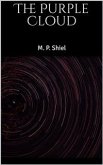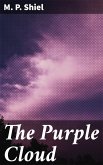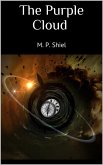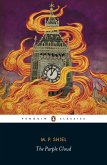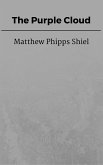Well, the memory seems to be getting rather impaired now, rather weak. What, for instance, was the name of that parson who preached, just before the Boreal set out, about the wickedness of any further attempt to reach the North Pole? I have forgotten! Yet four years ago it was familiar to me as my own name. Things which took place before the voyage seem to be getting a little cloudy in the memory now. I have sat here, in the loggia of this Cornish villa, to write down some sort of account of what has happened—God knows why, since no eye can ever read it—and at the very beginning I cannot remember the parson's name. He was a strange sort of man surely, a Scotchman from Ayrshire, big and gaunt, with tawny hair. He used to go about London streets in shough and rough-spun clothes, a plaid flung from one shoulder. Once I saw him in Holborn with his rather wild stalk, frowning and muttering to himself. He had no sooner come to London, and opened chapel (I think in Fetter Lane), than the little room began to be crowded; and when, some years afterwards, he moved to a big establishment in Kensington, all sorts of men, even from America and Australia, flocked to hear the thunderstorms that he talked, though certainly it was not an age apt to fly into enthusiasms over that species of pulpit prophets and prophecies. But this particular man undoubtedly did wake the strong dark feelings that sleep in the heart; his eyes were very singular and powerful; his voice from a whisper ran gathering, like snow-balls, and crashed, as I have heard the pack-ice in commotion far yonder in the North; while his gestures were as uncouth and gawky as some wild man's of the primitive ages.
Dieser Download kann aus rechtlichen Gründen nur mit Rechnungsadresse in A, B, BG, CY, HR, DK, EW, FIN, F, D, GR, IRL, I, LR, LT, L, M, NL, PL, P, CZ, R, SK, SLO, S, H ausgeliefert werden.



